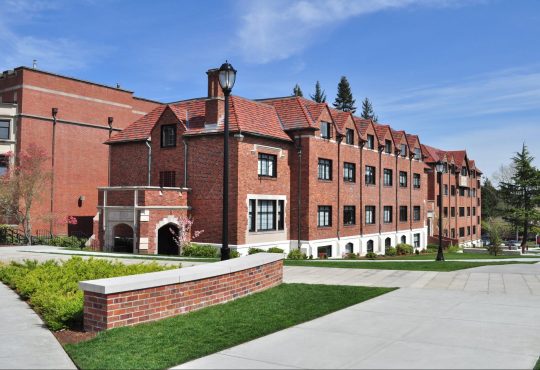
Bureaucracy does much less for this University than many administrators would like to admit. Uncomfortable and often disheartening stories about student interactions with the Registrar and Student Accessibility and Accommodations (SAA) float around campus constantly, for example, reminding us all of how taxing it can be to email an “office” rather than a person.
But while struggles with communication between student and administration are common, an often marginalized and overlooked plight is that of the transfer student here at Puget Sound.
Many transfer students, of the roughly 75 that join our ranks each year, face challenges with the administration over items like transfer credits, Seminar in Scholarly Inquiry (SSI) enrollment and especially housing. Transfer students have specific, and sometimes very personal, circumstances that don’t comply with the wishes of the robotic bureaucracy upheld in administrative offices. This tension and the resulting strife is a display of how this University is in fact a business before anything else — and that, needless to say, should change.
I spoke to an anonymous student who began school here this semester about their struggle with housing, specifically the two-year housing contract that all admitted students operate under and how it’s been enforced.
The Housing Contract can be found on the University’s webpage. It states the following: “The University of Puget Sound as a residential liberal arts college affirms the educational benefits inherent in this kind of undergraduate experience. Student learning, in and out of the classroom, and student success are enhanced by the on-campus residential experience. Being a part of a community of scholars is also reinforced by living in campus housing.”
As a result, all new students that come to Puget Sound must live on campus for two years, including transfers. There are some exceptions listed: married students, students with children, students who are at least 23 years old or dependents of Puget Sound faculty/staff. Exceptions outside this list are rare, usually defined by extreme financial hardship or severe mental/physical health issues.
In cases like this, a red flag is already waving. Every student is different, and trying to classify the exceptions to the contract with a couple of hyper-specific and understandably unlikely circumstances is not inclusive to students who may have unlisted, but still valid, reasons for spending less than the full two years on campus.
The anonymous transfer student is one such case. Upon applying for housing, they contacted the ResLife office to ask about the wording of the contract, and whether it would apply to them based on the fact that they attended a residential campus their freshman year and a commuter campus last semester. ResLife’s answer was brief, informing the student that their case would be considered.
“I was under the impression, after I was accepted and applied for housing, that I would only be spending one more semester on campus. As of now, I’ve been looking at apartments and making plans for my junior year … I reached out to ResLife and asked if my contract was complete after this semester, and was told that it could be if I submitted an appeal. I did that, made a case for myself, stating that my conditions meet the mission statement in the contract. I saw the housing contract as something flexible, something that would appeal to my situation.
“It was a very dry, bureaucratic response. I was expecting, especially from a small intimate liberal arts institution, that the moral and ethical code would be followed a bit differently. What I was told was that my situation was not considered. My past experiences with campus living don’t matter, and that only financial crisis would exempt me from the contract. Implicitly, they’re stating that if you have the money to pay for it, you’re gonna pay for it. It doesn’t matter your situation or what you need, what it comes down to is policy. And there’s no way around that. That’s what I was delivered.”
This student’s story is a glaring example of the disadvantages that Puget Sound’s bureaucratic administrative offices have in communicating with and assisting students. Not only has the student lost faith in the moral values of Puget Sound, but they’ve been granted access to a window showcasing the shallow and impersonal business maneuvers of a private enterprise.
I’ve said many times that Puget Sound has work to do in a lot of areas if it intends to live up to many of the words slapped onto promos and pictures, many of which are regurgitated to enrolled and prospective students alike. Housing is too important of a matter to be dealt with like a trip to the DMV. A more personal and empathetic perspective is needed in the ResLife office if students are really going to feel those “educational benefits inherent in this kind of undergraduate experience.”



